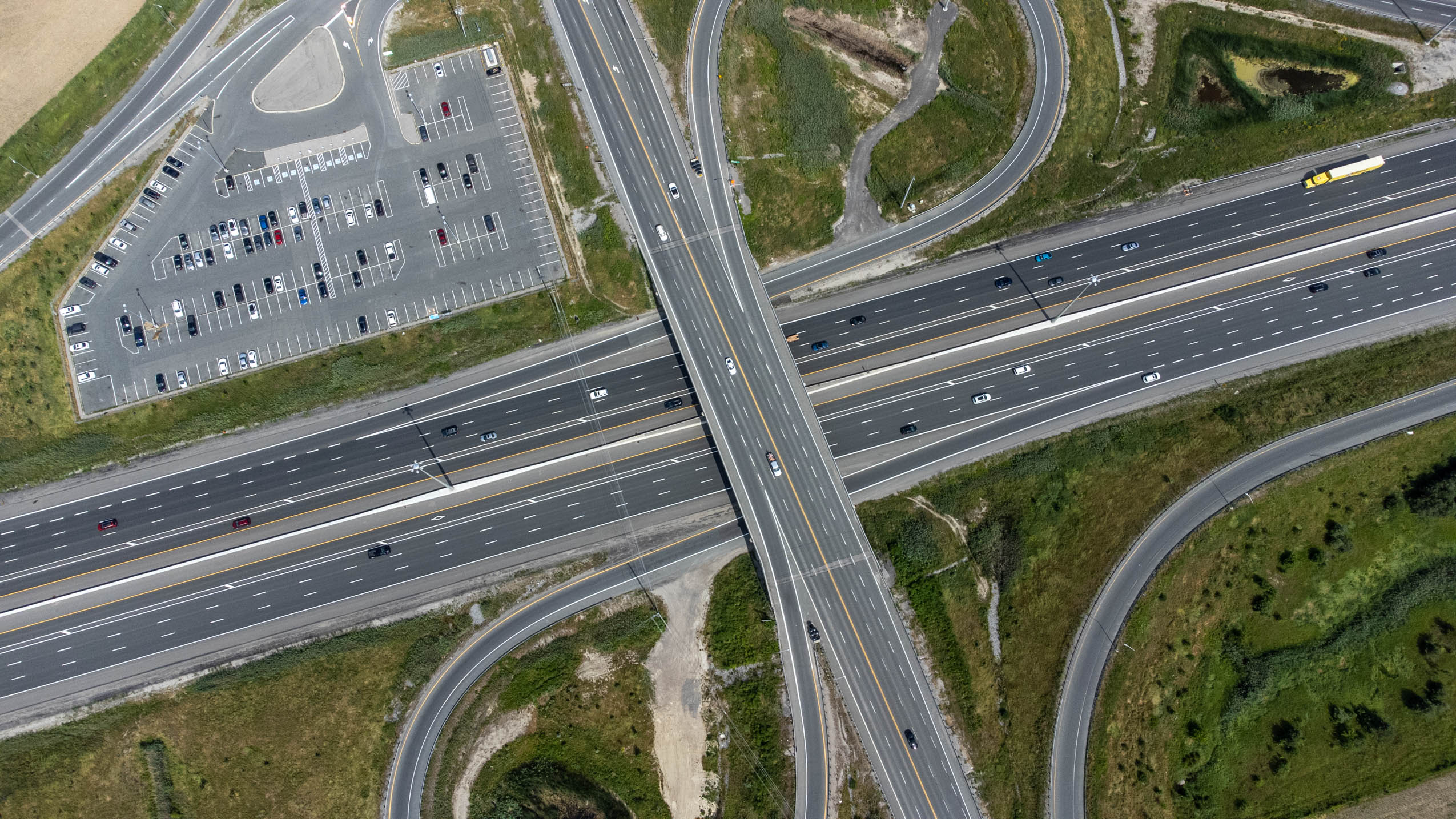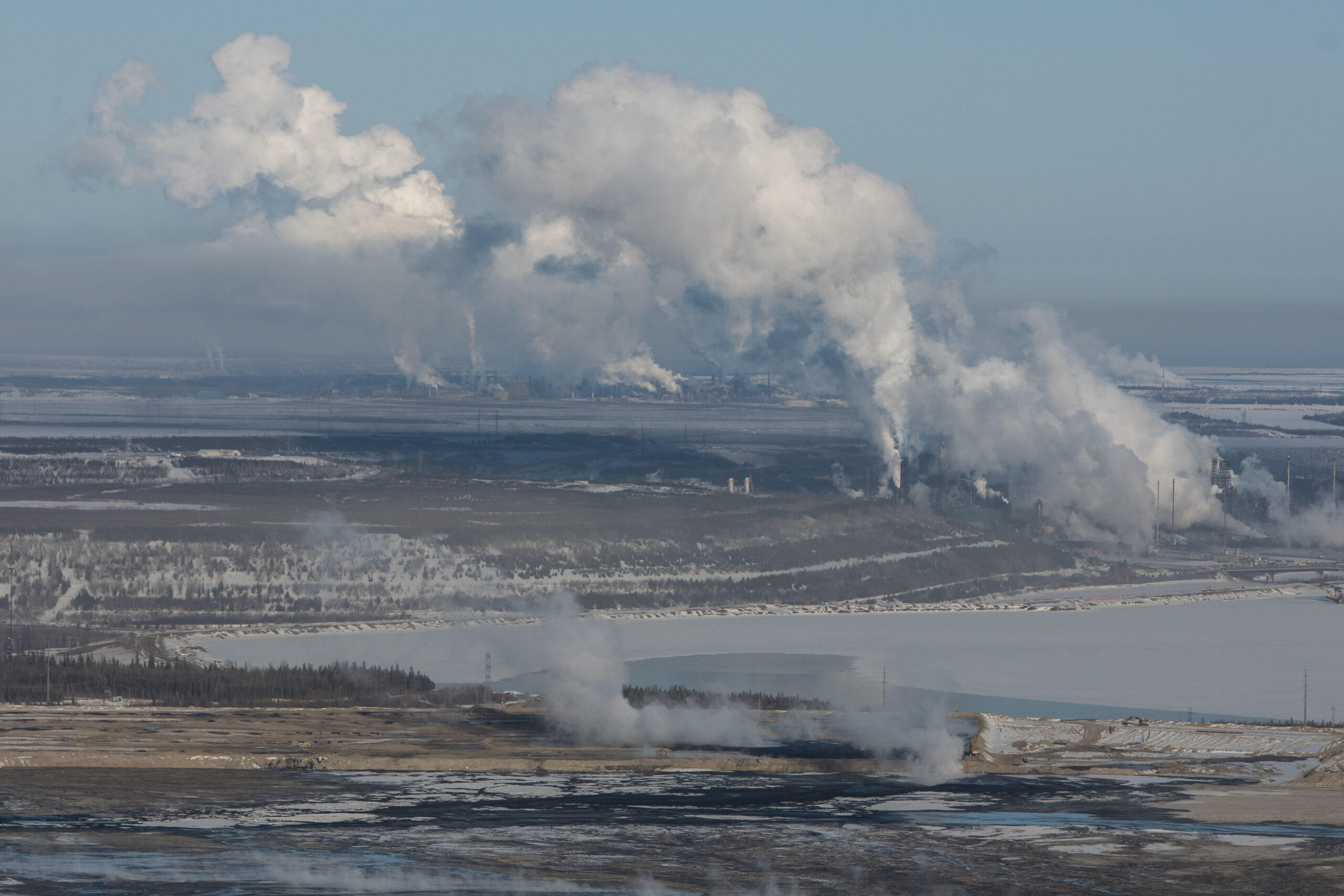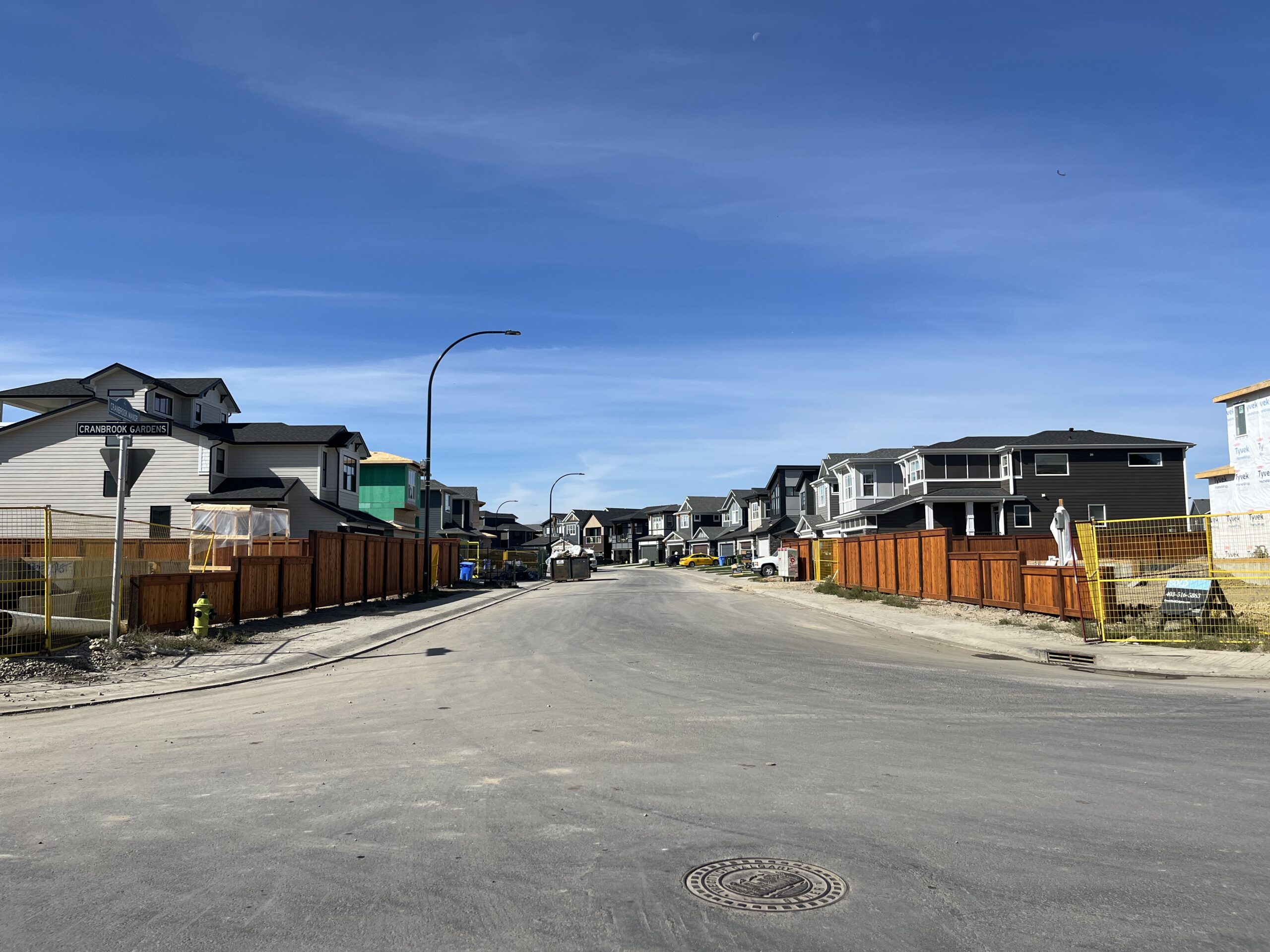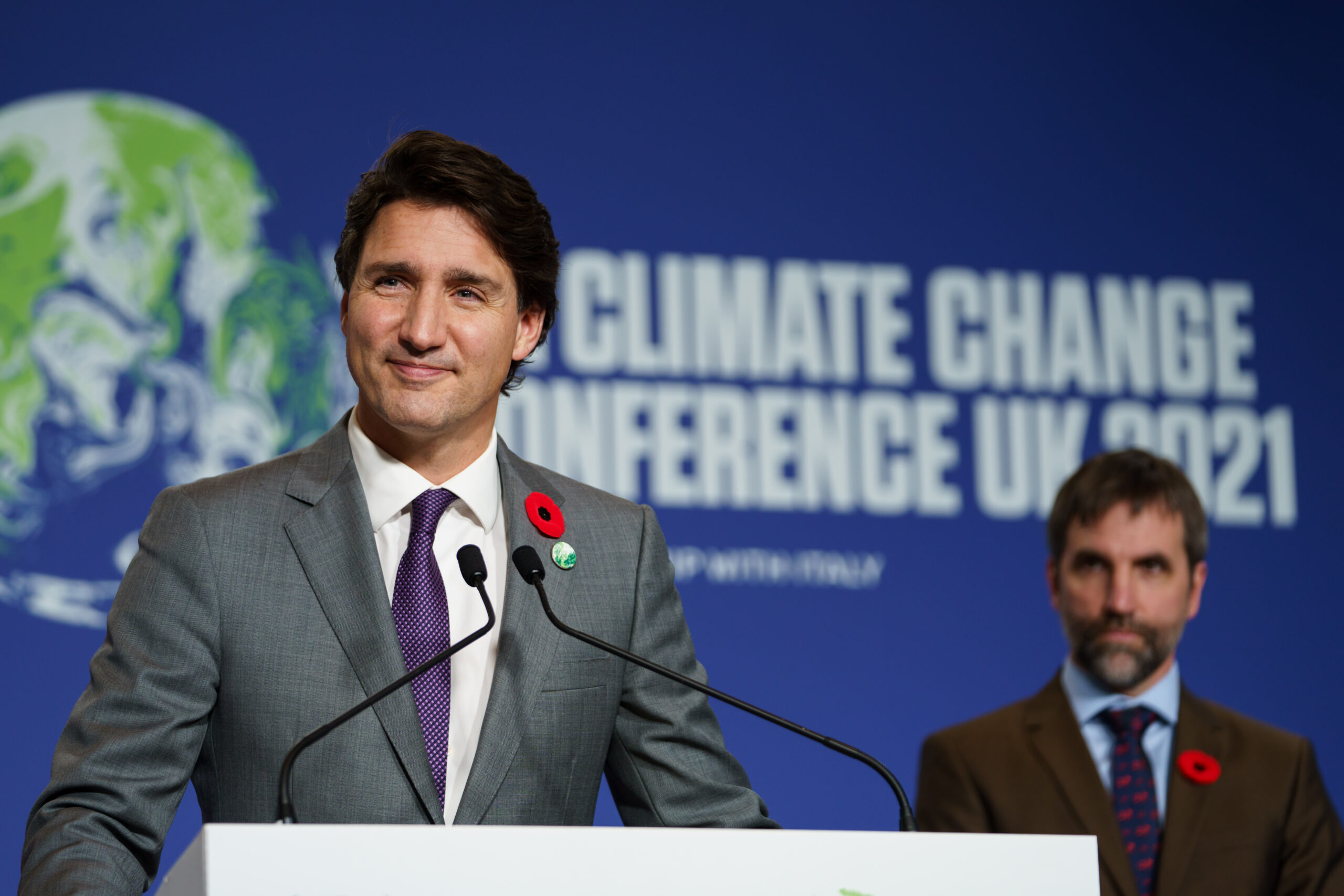
‘Afraid of the water’? Life in a city that dumps billions of litres of raw sewage into lakes and rivers
10 billion litres of sewage are dumped into Winnipeg’s lakes and rivers each year. Some...
Get the inside scoop on The Narwhal’s environment and climate reporting by signing up for our free newsletter.
Pierre Poilievre really doesn’t like the carbon tax.
Or: Pierre Poilievre really loves the carbon tax (as a political football).
Basically, it’s hard to imagine Pierre Poilievre without the carbon tax.
One could joke that there’s no need for a long explainer about the Conservative leader’s opposition to the carbon price: that you only need to write the word “politics” and call it a day. But that ignores the deeper conversation about the point and purpose of the levy, the arguments against it and what a future emissions reduction ecosystem would look like in Canada.
The price — it’s not actually a tax, but that rhetorical war has surely been lost — has been a source of exasperated inspiration for Poilievre since before his time as leader. As far back as 2015 (and maybe earlier), he was railing against the carbon tax in the House of Commons and beyond.
The message has remained remarkably consistent over those years — the cost of living, the impact on households, with a side serving of government ineptitude.
So why does Poilievre have such ire for the carbon tax? And what truth, if any, lies behind his attacks? Let’s find out.
It feels late in the game to explain what the carbon tax is and what it is meant to achieve, but it’s clear there’s considerable misinformation at play — and considerable misunderstanding among those of us who aren’t economists or policy wonks.
In short, the consumer carbon tax is meant to impose a cost on people to incentivize change. Think about “sin taxes” on cigarettes as one example.
But Canada’s tax is designed to give refunds for the vast majority of those costs. This leads to considerable confusion. Why would it incentivize behaviour if you just get the money back?

What’s often forgotten is the refund isn’t tied to your actual cost. Buy less gasoline, get the same refund. In other words, the less carbon you’re using, the bigger that refund actually is.
If you live in a rural area, you get a larger refund because of the higher costs of, well, life — including more driving.
Most of the money is returned directly to individuals through the Canada carbon rebate, while the rest is distributed to small- and medium-sized businesses, farmers and Indigenous governments.
Many economists consider it the most efficient, and least costly, way to incentivize emissions reductions. It is revenue neutral, meaning the federal government doesn’t actually make money off of it.
The consumer carbon tax is what you hear about when you listen to Poilievre, or many of the country’s premiers, complain about the levy.
But there’s a whole other carbon tax that’s much less political right now.
The industrial tax targets large industrial emitters and is separate from the consumer tax. In most provinces, it is run by the provincial government, not the feds, and the finer points can vary. B.C., Quebec and the Northwest Territories have completely independent consumer and industrial carbon taxes. In Quebec, where there is no distinct consumer tax in that province’s cap and trade system, there are no rebates for individuals., B.C. and the Northwest Territories both offer rebates to their residents.
Alberta — yes, Alberta, whose premier says the federal carbon tax is “cruel and punitive” — was the first jurisdiction in North America to introduce an industrial carbon price in 2007.
Money from the industrial levies is typically funnelled back into clean technologies and, like the consumer tax, is meant to incentivize companies to reduce emissions. The more efficient, the bigger the savings.

The industrial price also has the biggest impact on emissions.
Poilievre hasn’t talked about the industrial carbon price and it’s widely believed he would retain it.
Ken Boesenkool, a political strategist and former advisor to prime minister Stephen Harper, said the industrial price is here to stay if Poilievre wins.
“There’s a huge gap between what conservatives say and what conservatives do,” he told The National Post in October. “And I hate to admit this, but it’s true.”
Former Alberta premier Jason Kenney railed against the federal charge while increasing the industrial price in Alberta, he said, adding Premier Danielle Smith did the same and has committed to raising it to $170 per tonne.
In Saskatchewan, Premier Scott Moe has been vocal in his opposition and defied federal laws by refusing to collect the consumer tax on natural gas heating, but continues to collect the industrial price.
Moe and Kenney, along with Ontario’s Doug Ford, took the federal government to the Supreme Court to kill the consumer tax, but failed.
“The death of the carbon tax is here. Long live the carbon tax,” Boesenkool said.
The Conservative leader, whose media team did not respond to an interview request, has concentrated almost all of his energy on the cost of living, inflation and government spending. He has zeroed in on anger at the price of bread, housing, gasoline and more and has found simple targets and simple messages to channel the anger felt across the country.
He argues the carbon tax unfairly raises the prices on everything from food to shelter to utilities and has recently started calling them a self-imposed tariff. His messaging has been remarkably consistent, even before the pandemic, the resulting global economic churn and high inflation across the world.
Months before the Conservatives were defeated by the Liberals under Justin Trudeau in the 2015 federal election, and before Poilievre was chosen as leader of the party, he started hammering the possibility of a carbon tax and its impacts in the Commons. He started by warning seniors would suffer, then workers and industry, farmers and energy.

Focusing on the carbon tax and its impacts — real or imagined — fit within the populist political ideology of Poilievre, standing up for the people and their paycheques. His likely retention of the industrial price also fits within a strategy that doesn’t shy away from taking swipes at corporations and their leaders.
Poilievre’s argument, however, ignores the fact his proposal would eliminate carbon rebate cheques for consumers while they would still pay more for goods due to the industrial price — although just how much they would pay is an ongoing debate. Companies will likely pass on the additional costs to consumers, according to Christopher R. Knittel, an economics professor at the Massachusetts Institute of Technology (MIT).
No one likes paying taxes. Well, okay, very few people like paying taxes. The expense is concrete and consistent, while the benefits are harder to pinpoint. Everyone enjoys public health care when they need it, but nobody links that care with the money they see disappearing from their paycheques every two weeks.
With the carbon tax, the costs are front and centre at the gas pump or on a home heating bill, while the refund cheques arrive days, weeks or months later. Prices are high and that’s what sticks.
Targeting that tax is a political winner. Utilities high? Carbon tax. Gas prices high? Carbon tax. Groceries high? Carbon tax.
Even the federal NDP has called for an end to the consumer carbon price and its future seems unlikely, even if the Liberals were to pull off a surprise win under a new leader.
The message is simple and resonates even if academic studies — which are not simple and too often do not resonate — show little to no correlation between inflation and carbon taxes abound.
One study that looked at carbon taxes in Europe and Canada found there was little correlation with inflation and it was “especially muted in countries with revenue-neutral carbon taxes and autonomous central banks that can accommodate potential inflationary pressure associated with carbon pricing.”

In other words, if a country is able to control things like interest rates (like Canada) and refunds consumer carbon taxes (like Canada), the impacts are significantly reduced.
Trying to explain this tax to someone — it’s supposed to impose a cost in order to change behaviour but also provides a rebate that puts most of that money back in your pocket and slightly increases some costs but isn’t adding to inflation — is a losing argument against the simplicity of: prices are high, axe the tax.
It only helped Poilievre when the Liberals carved out an exemption for home heating oil (on the East Coast), which many saw as preferential treatment for some (traditionally Liberal) areas over others.
In short, yes. Most of it, but not all.
And again, there’s nuance and complexity that only serves to strengthen the simple “axe the tax” message helping drive Poilievre’s popularity.
For one, it’s impossible to break it down to each province and each area in a province, let alone individual experiences (although data shows poorer Canadians gain the most from carbon tax rebates). For another, there has been confusion, even among the Parliamentary Budget Office, regarding costs from the consumer tax and the industrial tax.
The office had to re-crunch the numbers after mistakenly including the industrial price in its first assessment of the financial impacts on households, and found the majority of Canadians will receive more in rebates than they pay.

The reassessment shows impacts on households will be reduced, on average, by hundreds of dollars, but varies from province to province.
Where it gets complicated, however, is that it also found households will be worse off, overall, when factoring in impacts on the national economy.
Where it gets even more complicated, however, is that the office did not consider the costs of climate change, the benefits of transition or the impacts of different policies.
Poilievre claimed victory, saying the report confirmed his view that the carbon tax will cost Canadians and should be scrapped. The Liberals claimed victory, with Environment Minister Stephen Guilbeault saying it exposed Poilievre’s “big lie.”
The lack of alternative policies, and the impacts of both climate change and international politics, could be a significant issue if Poilievre wins his eventual “carbon tax election.”
There was a moment earlier this year that was telling of the predicament Conservatives find themselves in when it comes to climate policy and the carbon tax. Saskatchewan Premier Scott Moe, a fierce opponent of the tax, told a House of Commons committee that his government examined alternatives to the tax and rejected all of them because they were too expensive.
His suggestion was to focus on global emissions and to find ways to help larger emitters decarbonize.
“If you accept the fact that climate change is real, if you accept this fact that climate change is a global challenge, not just one in Saskatchewan or even Canada for that matter, we need to work together with our national partners on achieving global solutions,” he said.
The argument, popular in the Canadian energy sector, is that Canada’s emissions are low compared to large emitters like China, or cleaner than areas lacking the wealth and technology of the west (although Canada’s emissions are the 13th highest per capita in the world).
The problem lies in the fact that Canada’s international political clout is also comparatively low and that it has struggled to reduce its own emissions.

Writing in Policy Options — a publication from the Institute on Research on Public Policy — in May, Carleton University political scientist Eric Van Rythoven, said the international system is turning toward carbon tariffs to punish those countries free-riding on climate obligations.
That includes Canada’s largest trading partner — and yes, that still applies with the recent re-election of Donald Trump.
“In American politics, carbon tariffs have an exceedingly rare quality: bipartisan appeal,” Van Rythoven wrote. “For MAGA [Make America Great Again] Republicans, they offer a means to strike back at countries they see, in Donald Trump’s words, ‘making billions screwing us.’ For progressive Democrats, they offer a means to fight climate change by penalizing countries they see as climate laggards.”
Studies have also shown broad support for carbon taxes (the industrial kind, anyway) from oil and gas companies. In Canada, some of the biggest producers have come out in favour of a price on carbon, while condemning moves to cap emissions.
The costs of climate change are also real and increasing. The Climate Institute, which researches climate change policy in Canada, suggests losses from not acting on climate change are accumulating and could mean GDP will be $35 billion less in 2030 due to climate impacts.
Those costs will continue to increase and accumulate over time, as will the costs of natural disasters linked to climate change, as well as mitigation against them. Like the price at the pump versus the cheque in the mail, immediate wants and future consequences are in conflict.
For Poilievre, that means winning a carbon tax election could be the easy part. Developing alternative emissions policies, or reversing course, could prove more difficult.
Get the inside scoop on The Narwhal’s environment and climate reporting by signing up for our free newsletter. On a warm September evening nearly 15...
Continue reading
10 billion litres of sewage are dumped into Winnipeg’s lakes and rivers each year. Some...

Court sides with Xatśūll First Nation, temporarily halting Mount Polley mine waste expansion

Break out the champagne: Emma’s storied life and leadership in journalism has earned her the...
